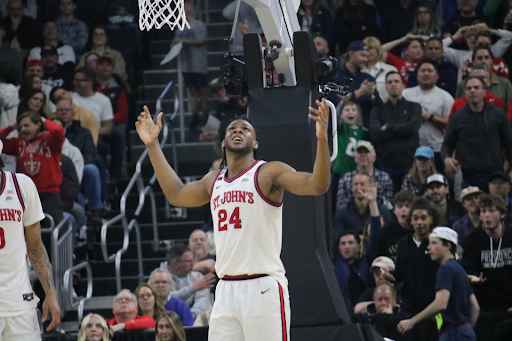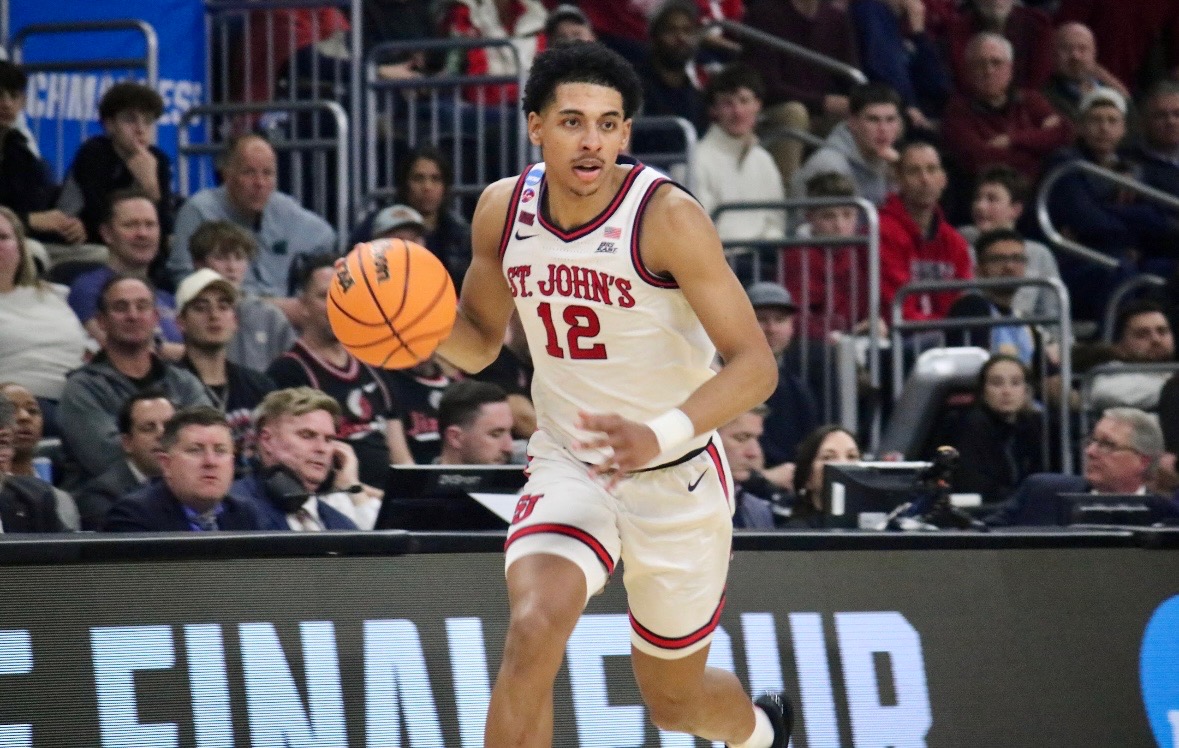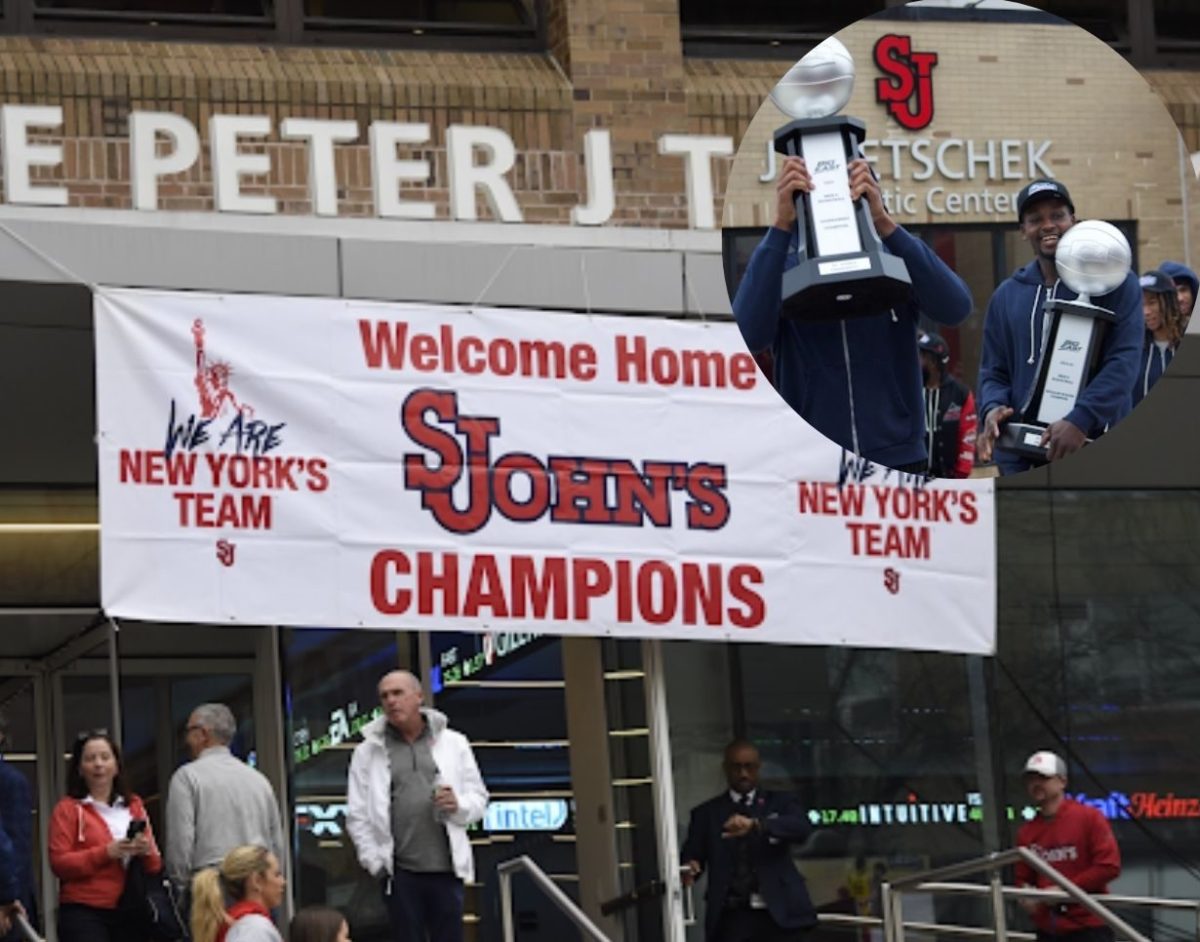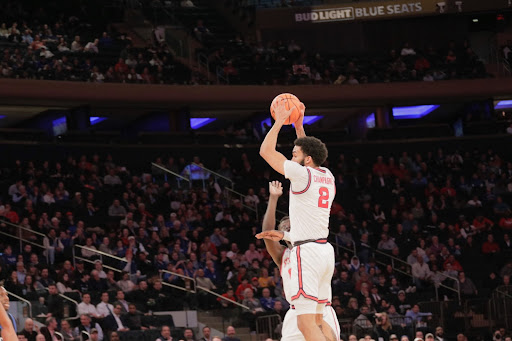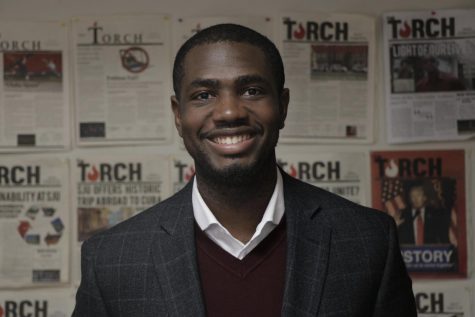Forty seven years after his father’s death, Dr. Richard Lapchick stood on the stage of the New Yorker Hotel’s grand ballroom. Even as nearly 300 guests watched him speak, he remained calm.
He does this often, traveling the country hundreds of times every year to talk about the legacy of Joe Lapchick, a player and coach who helped change the game of basketball for years to come. Last Friday, at the 10th Annual Joe Lapchick Character Awards Luncheon, he did the same, speaking of his father’s impact on the court and approach to life that made him one of basketball’s largest figures.
The story of a Knicks and Celtics playoff series was perhaps the most intriguing. Lapchick, after having won two National Invitational Tournament (NIT) titles as St. John’s head coach, assumed the same position with the New York Knicks in 1947.
During one game in particular, one of the Celtics drove for a layup. One of Lapchick’s defenders contested the shot, deflecting the ball away as it went through the hoop. The evident goaltend, however, was not called by the referees. A stoppage in play moments later gave Lapchick a chance to talk with them.
“That basket didn’t count,” he told the official.
His team ended up losing the game by one point, and ultimately the series four games to three.
Alumnus Kevin Reed, class of 1975, an avid St. John’s supporter, turned during the crowd’s applause, leaned in and whispered, “Everybody should know about Joe Lapchick.”
Born April 12, 1900, Joseph B. Lapchick dedicated more than 50 years to growing the game of basketball. Regarded as the game’s first true big man, Lapchick signed with the American Basketball League’s Original Celtics in 1923. A precise shooter and excellent passer, Lapchick provided the Celtics, and basketball, a unique skillset that dominated his era.
After a Hall of Fame playing career with the Celtics and other barnstorming teams, as they were called, Lapchick took a job as head coach at St. John’s in 1936. In 11 seasons, he led the Redmen to a 180-55 record, including consecutive NIT titles in 1943 and 1944.
Three years after the second title, Lapchick began his coaching tenure with the Knicks, leading them to eight straight winning seasons and eight trips to the postseason. The team went to three consecutive NBA Finals from 1951-1953. After nine seasons with the Knicks and a 326-247 record, Lapchick returned to St. John’s.
Nine more seasons with the Redmen translated to two more NIT titles, the last of which came as the Redmen upset Villanova 55-51 in the 1964-1965 season. A two-time college Coach of the Year, Lapchick stepped down after compiling a 334-130 coaching record at St. John’s.
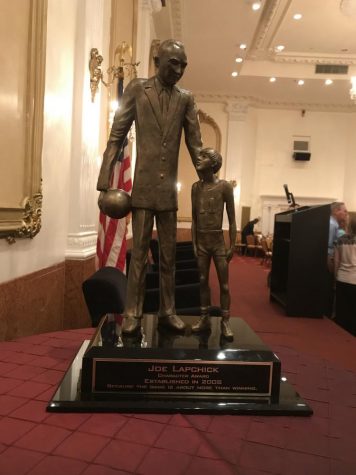
But Lapchick was known for more than his brilliance on the court. As a man, leader, and humanitarian, the same passion Lapchick displayed as a coach was rubbed off on the men he coached and mentored.
Legendary St. John’s Coach Lou Carnesecca, who was in attendance at Friday’s ceremony, was also the subject of a story told by Dr. Lapchick.
Lapchick was serious about his players’ lives, including their academics. While at St. John’s, a coach tipped him off that his players weren’t studying and attending classes. He and Carnesecca, a then-assistant under Lapchick, created what is believed to be the first study hall, which is now mandated throughout high school and college sports.
From that point on, it was Lapchick’s character that stood out more than anything. After first-hand experiences with racism and segregation, Lapchick drafted and signed Nat “Sweetwater” Clifton in 1950 while coaching the Knicks. Clifton became the first black player to ink an NBA contract, the second to play in a game.
Dr. Richard Lapchick still remembers an effigy of his father hanging from a tree across the street from their home. He glanced out of the window, saw a crowd and called his mother. It dangled like a dead body and frightened him. People stood next to it, protesting his decision to add a black player on a previously all-white team. Joe was five-year-old Richard’s best friend. He didn’t know why people hated his dad.
After years of writing, speaking and teaching, Lapchick died in Monticello, New York in 1970 at the age of 70. Four years earlier, he was elected to the Naismith Memorial Basketball Hall of Fame.
Lapchick’s career, however, extended beyond the scope of basketball. He was a pioneer, both local and national, who cared deeply about his players and society. It encouraged Richard to fight apartheid in South Africa and speak out against racial bias. Carnesecca succeeded Lapchick, learning the legs of coaching from the bench. His enthusiasm for the game rubbed off on those who played under him. Eight players from his 1953-1954 Knicks squad went on to coach college and professional basketball.
His life was detailed in the 2006 book Lapchick, written by former St. John’s great Gus Alfieri, who was the point guard on the 1959 NIT championship team and went on to coach high school basketball on Long Island.
In that book, Carnesecca recalled a conversation he had with Lapchick. He described him as a humble man, one who loved all but “hated geniuses” who put themselves above others.
What Lapchick said to the Hall-of-Fame coach has stuck with him ever since. It has become a motto for those who knew Lapchick and the people he has served and influenced.
As they left a banquet one night, Lapchick turned to Carnesecca. “Here,” he said. “Take this and put it in your wallet. Carry it with you all the time and when you think you’re pretty smart, read it.”
To this day, the 92-year-old still carries the card with him.
“Peacock today, feather duster tomorrow.”






